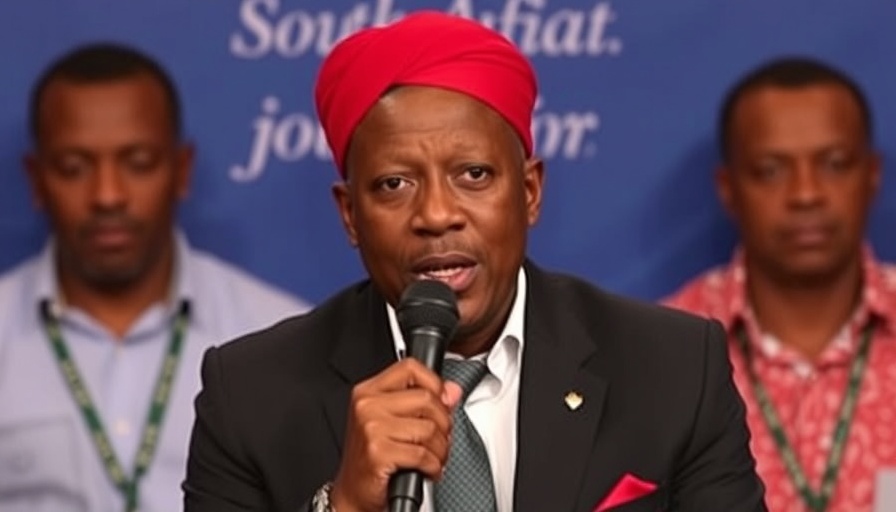
The Significance of Trump Hosting African Leaders
Next week, former President Donald Trump will host five prominent African leaders in a meeting aimed at exploring commercial opportunities between the United States and the African continent. This gathering marks a potential shift in American diplomatic focus toward Africa, representing an avenue for enhancing bilateral trade and investment at a time when developing economies are increasingly pivotal in global markets.
Exploring Africa’s Economic Potential
Africa's economy is one of the fastest growing in the world, driven by youthful demographics and an expanding middle class. Engaging with African leaders presents both a challenge and an opportunity for U.S. businesses looking to invest in sectors such as technology and infrastructure. The discussions will likely center around facilitating smoother trade routes and ensuring mutual benefits, notably in the digital economy which has shown astounding growth across the continent.
Current Trade Dynamics with Africa
The recent surge in Africa's economic growth aligns closely with the global interest in diversifying trade partnerships, especially following sluggish post-pandemic recovery. Countries like China and members of the European Union have aggressively pursued trade agreements with African nations, leading to increasing geopolitical significance. Trump's timing suggests a competitive urgency for the U.S. to reassert influence and secure long-term economic partnerships, particularly in light of recent developments in U.S.-Africa relations.
Geopolitical Implications and Future Trends
The meeting not only serves to bolster commercial ties but may also reflect broader geopolitical strategies as African nations play a pivotal role in the global order. As countries like South Africa, Nigeria, and Kenya strengthen their economies, there is a budding desire for more equitable trade practices that could redefine governance models across the continent. Expect insights on shifting alliances, particularly as African nations engage with the BRICS coalition and navigate their place in a multipolar world.
What This Means for Investors
For investors, these discussions present an array of opportunities. With African markets showing resilience and potential for substantial returns, the meeting represents a call to assess new strategies and rethink traditional approaches to investment in the region. Investors should be cognizant of both risks and rewards, ranging from fluctuating political environments to burgeoning digital markets.
In conclusion, Trump's gathering of African leaders could herald a vital re-engagement with a continent that holds a treasure trove of opportunities and risks alike. Business leaders, policymakers, and researchers alike should closely monitor the outcomes of this event, as they will undoubtedly shape the framework for future interactions between the United States and Africa.
 Add Row
Add Row  Add
Add 


Write A Comment